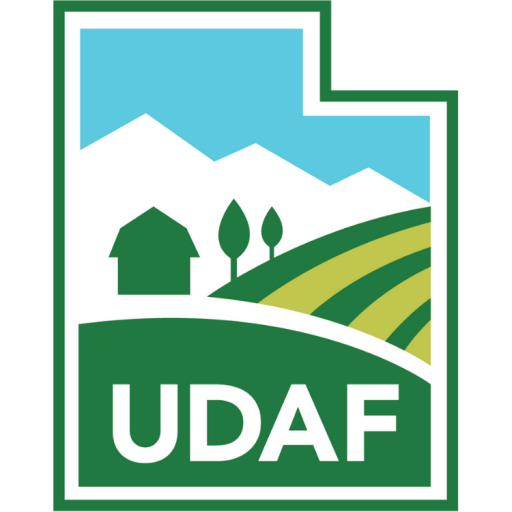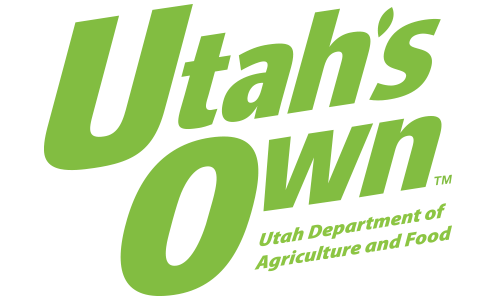The Utah Local Food Advisory Council (LFAC) is a diverse group of stakeholders who work towards solutions and advocate for food systems that strengthen Utah’s food security, agriculture, food industries, and local economies through advocacy, education, and policy work. The LFAC is administered by the Utah Department of Agriculture and Food’s Marketing and Economic Development Division. The council meets formally four times annually and includes four working groups focused on regulations, food security, agricultural land preservation, and production & distribution that meet more frequently. Information on upcoming meetings and events can be found below.
Stay up to date on news and events about the Local Food Advisory Council by the following the council’s Facebook page.
History:
In 2017, the Utah State Legislature created the Local Food Advisory Council (LFAC) to develop ways to create vibrant local food economies, increase access to fresh local food, and support sustainable, vital agriculture operations throughout the state.
 The LFAC was created by state statute (4-2-6) to:
The LFAC was created by state statute (4-2-6) to:
-
- Build local food economies
- Benefit the state by creating jobs
- Stimulate statewide economic development
- Circulate money from local food sales within local communities
- Preserve open space
- Support local family-owned farms
- Preserve and protect the natural environment
- Increase consumer access to fresh and nutritious food
- Provide greater food security for state residents
LFAC Council Members:
| Member Name | Title | Organization | |
|---|---|---|---|
| Sen. Luz Escamilla | Senate Co-chair | Utah Senate | lescamilla@le.utah.gov |
| Rep. Mike Kohler | House of Rep. (R) Co-chair | Utah House | mkohler@utah.gov |
| Rep. Sahara Hayes | House of Rep. (D) | Utah House | shayes@le.utah.gov |
| Craig Buttars | Commissioner, Utah Department of Agriculture and Food | Utah Department of Agriculture and Food | craigbuttars@utah.gov |
| Bjorn Carlson | Livestock Direct-to-Consumer Food Producer; Appointed by the Governor (1 of 2) | Blue Tree Farms | info@bluetreefarms.com |
| Gina Cornia | At large: Anti-Hunger Advocate Appointed by the Governor | Utahns Against Hunger | cornia@utah.org |
| Jack Wilbur | Crop Direct-to-Consumer Food Producer; Appointed by the Governor (1 of 2) | 3 Squares Produce | jack@3squaresproduce.com |
| Janae Duncan | Utah Department of Health and Human Services Designee | UDHHS – Division Director for Disease Control | janaeduncan@utah.gov |
| Jordan Riley | Crop Direct-to-Consumer Food Producer; Appointed by the Governor (1 of 2) | Riley Farms | jordanandri@gmail.com |
| Kelsey Hall | At large: Academic with Expertise in Agriculture; Appointed by the Governor | Utah State University | kelsey.hall@usu.edu |
| Laurie Seron | Food Distributor; Appointed by the Governor | seron.laurie@gmail.com | |
| Tamra Jorgenson | Livestock Direct-to-Consumer Food Producer; Appointed by the Governor (1 of 2) | Cherry Creek Farms, LLC | etccfarms@gmail.com |
| Colleen Dick | Nonvoting; Appointed by the Local Food Advisory Council Co-Chairs | Rainbird Village | colleen@rainbirdut.com |
| Georgina Griffith-Yates | Nonvoting; Appointed by the Local Food Advisory Council Co-Chairs | Wasatch Community Gardens | georgina@wasatchgardens.org |
| Ruby Ward | Nonvoting; Appointed by the Local Food Advisory Council Co-Chairs | Utah State University | ruby.ward@usu.edu |
| Symbria Patterson | Nonvoting, Appointed by the Local Food Advisory Council Co-Chairs | Red Acre Center | symbria@redacrecenter.org |
 LFAC Workgroups:
LFAC Workgroups:
-
- Agriculture Land Preservation Workgroup
-
-
- The purpose of this workgroup is to identify ways for the Local Food Advisory Council to support agriculture land preservation.
-
-
- Production and Distribution Workgroup
-
-
- This workgroup will focus on finding ways to support and promote innovations in food production, distribution and access. This workgroup’s discussion and activities will focus on food hubs and the opportunities and challenges of hubs as an innovative distribution method.
-
-
- Food Security
-
-
- A strong local food system is essential to producing and distributing locally grown food that is fresher and more nutritious. Food security builds the local economy as money circulates to farmers and local businesses and connects producers to consumers- making communities stronger and healthier places.
-
Regulations Workgroup
-
The purpose of this group is to identify potential legislation that addresses the area of regulation in connection to the local agriculture and food industries.
-
-
LFAC Successes and Initiatives:
2021 Local Food Hub Grant
Food hubs are centralized distribution centers that connect locally produced fruit, vegetables, meat, etc. with broader regional markets. Food hubs aggregate lots of produce or goods from multiple producers, allowing small-to-medium sized farmers and ranchers to reach large, institutional buyers like restaurants, schools, hospitals, and more. Food hubs may also provide other support to businesses through means including marketing, cold storage, and minimal processing, but above all, they help farmers spend more time farming and maintaining viable operations by helping them gain access to larger markets that would otherwise be inaccessible.
 Food hubs are a crucial part of local and regional food systems and are one of the reasons you see local tomatoes at your supermarket or find salads made with local greens on restaurant menus. They help small and mid-size farms grow their customer base by pooling products from many area farms and selling it to larger institutions including school districts, restaurant groups and more. The USDA’s Agricultural Marketing Service lists more than 240 food hubs in its director and each of those food hubs is slightly different. In 2021, the LFAC supported the Utah Department of Agriculture and Food in receiving a one-time appropriation of $112,500 for the FY21 Local Food Hub Start Up and Development Fund. UDAF distributed two grants with this funding increasing local food access throughout the Wasatch Front.
Food hubs are a crucial part of local and regional food systems and are one of the reasons you see local tomatoes at your supermarket or find salads made with local greens on restaurant menus. They help small and mid-size farms grow their customer base by pooling products from many area farms and selling it to larger institutions including school districts, restaurant groups and more. The USDA’s Agricultural Marketing Service lists more than 240 food hubs in its director and each of those food hubs is slightly different. In 2021, the LFAC supported the Utah Department of Agriculture and Food in receiving a one-time appropriation of $112,500 for the FY21 Local Food Hub Start Up and Development Fund. UDAF distributed two grants with this funding increasing local food access throughout the Wasatch Front.
A Win for Utah Farmers: A food hub provides a reliable distribution source for medium size and larger farms and aggregates products from smaller farms allowing them to enter wholesale markets.
A Win for Utah Consumers: Food hubs allow local restaurants, grocery stores, hospitals and schools consistent access to local food, especially farm-fresh food.
In 2021, the LFAC supported the Utah Department of Agriculture and Food in receiving a one-time appropriation of $112,500 for the FY21 Local Food Hub Start Up and Development Fund. UDAF distributed two grants with this funding increasing local food access throughout the Wasatch Front.
For more information, contact Mitch Garrett at (385) 549-9167 or mitchellgarrett@utah.gov





